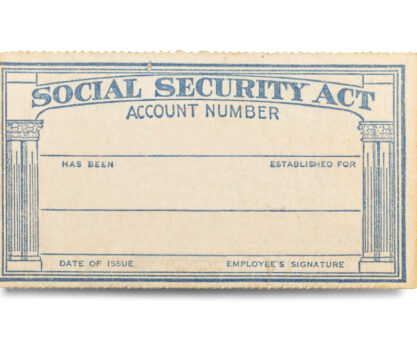At what age does the countdown to retirement really begin? Consider this – the IRS allows you to start making Catch-Up Contributions to your Thrift Savings Plan (TSP) at age 50. Depending on your birth year and years of creditable service under FERS, you can retire as young as age 57. If you haven’t started to work on your retirement plan by your half-century birthday, you really can’t afford to procrastinate any longer.
Failing To Calculate How Much Retirement Income You’ll Need
It’s simple, really – how do you know if you’re saving enough for retirement if you have no idea how much you’ll need to live comfortably when you’re no longer working? Until you take the time to crunch the numbers, at best you’re winging it. The major pitfall is finding out you have a gap between your income and expenses after you retire.
To arrive at the best estimate, you need to factor in realities like inflation, the rising cost of healthcare, a severe stock market correction, a hike in federal income taxes, or, worse, an unexpected health crisis that forces you to retire earlier than expected. A solid retirement plan requires sitting down with a professional and crunching the numbers.
Assuming You Can Continue To Work Longer
Studies show more and more Americans say they plan to work until age 70. However, according to AARP.com, the COVID-19 Pandemic forced millions of older Americans to retire far earlier than planned. Even in years before the pandemic, a survey conducted by the Employee Benefits Research Institute (EBRI) found that 48% of workers left the workforce earlier than they had planned. The main reasons were a chronic health problem, a sudden disability, or getting downsized out of their job. A savvy retirement plan always factors in the unexpected.
“Without the latest information and professional help, you may make a costly mistake that can impact your retirement income for the rest of your life.”
Attempting A DIY FERS Retirement Plan
Your FERS retirement has a lot of moving parts to consider. Should you retire at your Minimum Retirement Age (MRA)? Or, should you work longer to qualify for the FERS 10% Bonus? Should you make post-tax contributions to the Roth TSP? Or, should you keep all of your money in the tax-deferred, traditional TSP? These and other retirement-planning decisions are unique to feds. Without the latest information and professional help, you may make a costly mistake that can impact your retirement income for the rest of your life.
Connect with an FRC® trained advisor who fully understands your federal benefits. Together, you can get started on your retirement plan before it’s too late.


























